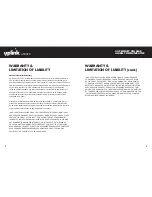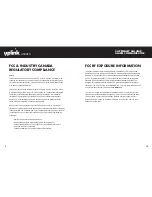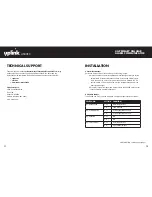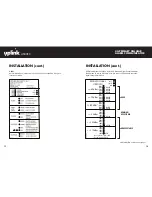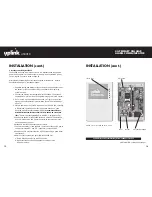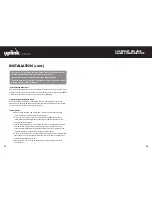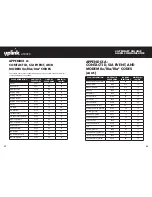
4G PRIMARY CELLULAR
ALARM COMMUNICATOR
®
4530EX
9
10
FCC RF EXPOSURE INFORMATION
In August 1996 the Federal Communications Commission (FCC) of the United
States with its action in Report and Order FCC 96-326 adopted an updated safety
standard for human exposure to radio frequency electromagnetic energy emitted
by FCC regulated transmitters. Those guide-lines are consistent with the safety
standard previously set by both U.S. and international standards bodies. The
design of this module complies with the FCC guidelines and these international
standards. The FCC ID of this unit is QIPPHS8-US. For more information about RF
exposure, please visit the FCC website at
www.fcc.gov
.
The term “IC” before the certification/registration number only signifies that the
Industry Canada Technical Specifications were met. The external antennas used
for this module must provide a separation distance of at least 20cm from all
persons and must not be co-located or operating in conjunction with any other
antenna or transmitter.
FCC & INDUSTRY CANADA
REGULATORY COMPLIANCE
Part 15
This device complies with Part 15 of the FCC Rules. Operation is subject to the
following two conditions: (1) this device may not cause harmful interference, and
(2) this device must accept any interference received, including interference that
may cause undesired operation.
This equipment has been tested and found to comply with the limits for a Class
B digital device, pursuant to Part 15 of the FCC Rules. These limits are designed
to provide reasonable protection against harmful interference in a residential
installation. This equipment generates, uses, and can radiate radio frequency
energy and, if not installed and used in accordance with the instructions, may
cause harmful interference to radio communications.
However, there is no guarantee that interference will not occur in a particular
installation. If this equipment does cause harmful interference to radio or television
reception, which can be determined by turning the equipment off and on, the user
is encouraged to try to correct the interference by one or more of the following
measures:
• Reorient or relocate the receiving antenna.
• Increase the separation between the equipment and receiver.
• Connect the equipment into an outlet on a circuit different from that to
which the receiver is connected.
• Consult the dealer or an experienced technician for help.





